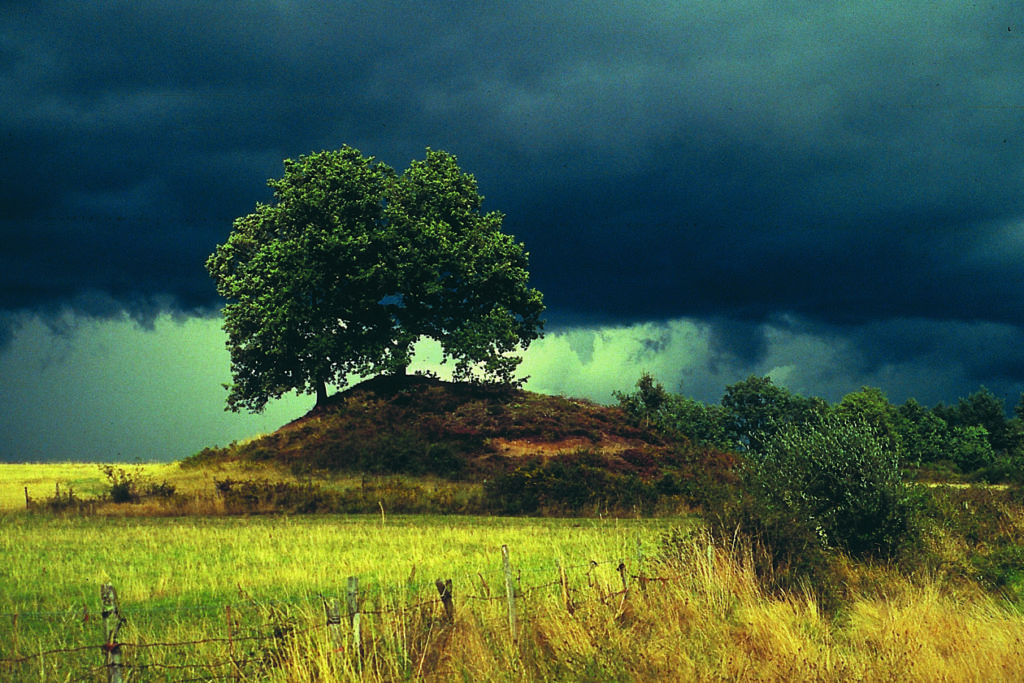[LUM#12] Migrating flora
French flora is no longer what it was 10 years ago. Researchers have recently shown that the identity and abundance of plant species in France changed between 2009 and 2017. The cause? Global warming.

How are plants affected by global warming? While researchers have long shown that rising temperatures are changing the distribution range of many animals such as birds and fish, the consequences for flora remained poorly understood... until now. A recent study explored the evolution of plant species between 2009 and 2017, and its findings are clear: French flora is changing.
Citizen science
"Clear, concise, and solid results," emphasizes Vincent Devictor. The researcher fromthe Institute of Evolutionary Sciences in Montpellier participated in this extensive study, which was conducted thanks in particular to the Vigie-Flore participatory science program. Amateur and professional botanists sample wild flora throughout France and share their observations with the National Museum of Natural History. This provides researchers with a wealth of valuable data. "A total of 320 volunteer observers monitored more than 3,000 sites each year for nine years using a standardized observation protocol," explains Vincent Devictor. This means that 2,500 plant species have been monitored in different environments—urban, agricultural, forest, and grassland—out of the 6,000 plant species that exist in metropolitan France.
To assess changes in flora, researchers took into account the thermal preference of each plant. "This is the optimal temperature required for their development, their preferred temperature, " explains the researcher. They considered this index for a collection of 550 species representative of the common flora of France. "We then calculated the average preferred temperature for this group and observed its evolution over time." The researchers then noticed that this average preferred temperature had increased between 2009 and 2017.
Preferred temperature
In practice? "This means that French vegetation is increasingly composed of species that tolerate high temperatures well, to the detriment of species that prefer cooler climates." Plants with a strong thermal preference are becoming more prevalent and colonizing new territories. This is particularly the case for bearded oats and Madrid brome grass, which seem to be benefiting from the situation. Conversely, species with low thermal preferences have seen their abundance decline and have lost ground, such as false knotweed and wild chervil, which are disappearing from places where they were present until recently. A real change in the face of French flora in just eight years.
Could such rapid change be caused by global warming? To find out, researchers studied temperature readings from sites monitored by Vigie-Flore observers and found a significant increase in average temperatures between 2009 and 2017. "This increase appeared to be linked to changes observed within plant communities," says the ecologist. Indeed, sites with significant temperature variations are also those that have undergone a major replacement of species over time, with the least heat-tolerant species giving way to the most heat-tolerant ones.
Short time
From there, it is only a short step to conclude that global warming is responsible for this change in flora... "But before taking that step, we had to make sure that other factors, such as the preference of plants for nitrates or CO2, were not responsible for this change," adds Vincent Devictor. These parameters have not changed significantly over time at the sites monitored. "We can therefore clearly state that global warming is directly responsible for these changes in wild flora. This is the first time that a response by flora to rising temperatures has been demonstrated on a national scale over such a short period of time, " insists the ecologist.
What are the consequences? "We could see this as good news, telling ourselves that flora is quickly adapting to rising temperatures, but it is highly unlikely that this thermal adjustment will be perfect," the researcher cautions. "There will be a delay that is likely to affect all ecosystems, because plants are the basis for the survival of all other groups," Vincent Devictor points out. Something to think about during a future walk in the scrubland... in northern France.
Find UM podcasts now available on your favorite platform (Spotify, Deezer, Apple Podcasts, Amazon Music, etc.).